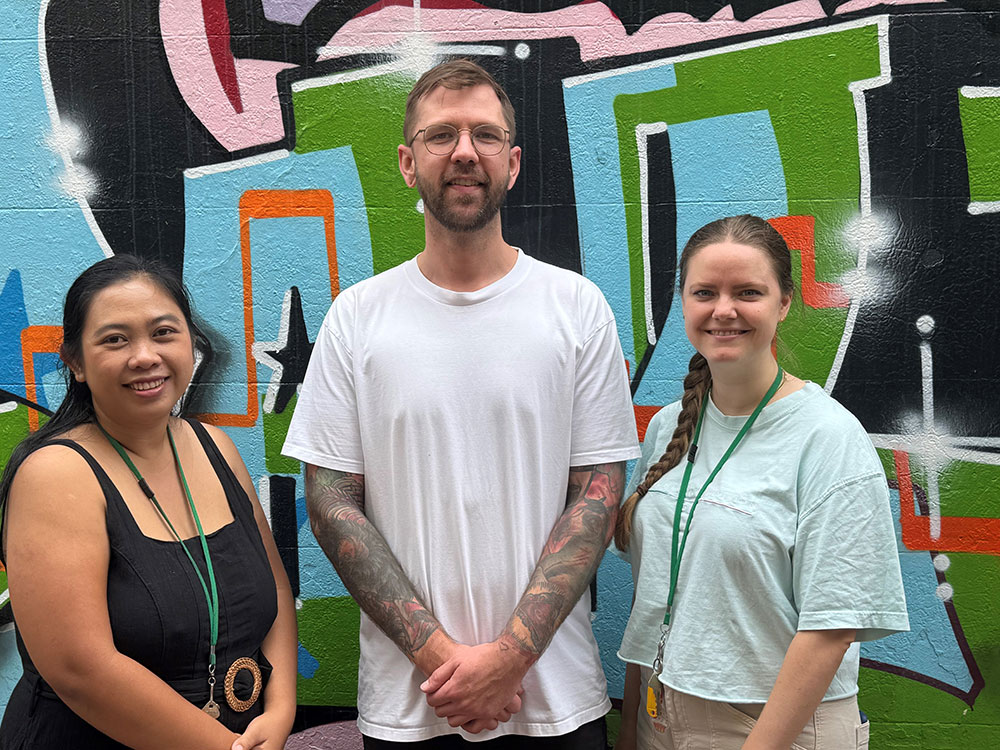A new treatment that could potentially reverse or stop progression of traumatic brain injury will be developed at a new state-of-the-art biotechnology facility launched at La Trobe University.
The $8 million Bio Innovation Hub, funded by the Victorian Higher Education State Investment Fund (VHESIF), was officially opened by Victorian Government Minister Colin Brooks, representing the Minister for Training and Skills Gayle Tierney, and La Trobe Vice-Chancellor Professor Theo Farrell at La Trobe’s Melbourne campus in Bundoora today.
The purpose-built facility will support the development of world-leading biotechnology and agri-technology businesses. It includes PC2 “wet” laboratories – joining just a handful of the sought-after labs in the state – and world-class equipment to help businesses commercialise their research discoveries.
Minister Brooks said: “This new hub at La Trobe University will empower students to gain invaluable industry knowledge and experience – preparing them to contribute to Victoria’s thriving $40 billion biotech sector.”
Professor Farrell said building on the University’s strong reputation in research, innovation and industry engagement, the Bio Innovation Hub will support the commercialisation of breakthrough research in Victoria.
“Integral to our growing research and innovation precinct in Melbourne’s north as part of University City of the Future, the Bio Innovation Hub will connect La Trobe’s world-class research capabilities in biotechnology, molecular sciences and agriculture with some of Australia’s most pioneering industries, creating a catalyst for growth and innovation,” Professor Farrell said.
“La Trobe students will also benefit from the Hub’s state-of-the-art facilities, gaining real-world research experience that will lead to future career opportunities.”
Start-ups and small to medium-sized biotechnology and agri-technology enterprises will have the opportunity to become tenants in the bespoke facilities located within the University’s Research and Innovation Precinct, a key platform of La Trobe’s .
The first occupants of the Hub include La Trobe spin-out AlleSense, regenerative and preventative medicine company Aeterna Health, and VivaZome Therapeutics Pty Ltd.
VivaZome CEO and Managing Director Xenia Sango said they were proud to be among the first occupants of the Hub, which had significant benefits to VivaZome’s research. This includes access to state-of-the-art equipment and facilities, a world-class university research network, potential to develop partnerships with other leading researchers and industry, and access to top talent including students and researchers interested in biotech innovation.
VivaZome’s focus is on developing and commercialising customised Extracellular Vesicles (EVs) – tiny ‘sacs’ that have the potential to transport key medical supplies to targeted parts of the body. They specialise in targeted treatments for neurodegenerative diseases, including Traumatic Brain Injury (TBI) and stroke.
Ms Sango said the EVs contain a mix of cargo such as protein, lipids and DNA, which travel throughout the body and “talk” to other cells. The cargo is transmitted from the sacs into targeted areas of the body, administering treatment where it is needed most, including the brain.
Ms Sango said the EVs have the potential to stop or even reverse symptoms of TBI, and she hoped to have clinical trials underway within three years.
“By delivering these therapeutic EVs directly to the injured brain, we aim to repair damaged cells and potentially restore lost functions, offering improved quality of life for patients with TBI,” she said.
Ms Sango said VivaZome’s proprietary EVs had also been shown to reduce inflammation, helping prevent further injury.
“It’s important to try to stop that inflammation from occurring to try and prevent the onset of other conditions. EVs are a powerful platform, versatile and a promising tool.”
About La Trobe’s biotech expertise
La Trobe is a leader in research and education across both medical and agricultural biotechnology, with expertise including immunology, genetic engineering, microbiology, and structural biology.
Our research institutes – including the La Trobe Institute for Molecular Sciences (LIMS), Olivia Newton John Cancer Research Centre, the Baker Department of Cardiovascular Research Translation and Implementation, and the Centre for AgriBioscience, a joint venture with Agriculture Victoria – enable us to work on cross-disciplinary projects, with a focus on innovation and translation to support biotech organisations and the development of the local biotech sector.
La Trobe’s digital innovation and research expertise extends our support of the biotech sector through research expertise and workforce development to support the digital transformation of biotech organisations.
La Trobe has a proud history of co-location of industry in our facilities, supporting the growth of biotechnology and agri-technology companies from start-ups to ASX listing.








